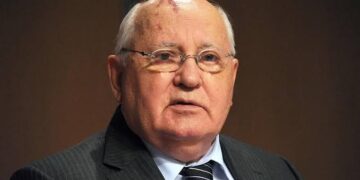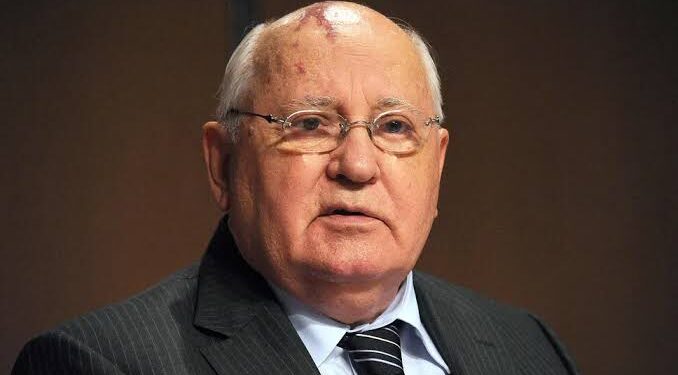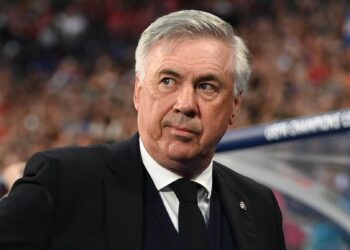By Emmanuel Nduka
Mikhail Gorbachev, the last leader of the Soviet Union, has died at the age of 91, Russian state media reported.
Confirming this, his personal press secretary Vladimir Polyakov, did not immediately give the cause of his death. His office had said earlier that he was undergoing treatment at the Central Clinical Hospital in Moscow, Associated Press reported.
In a statement issued on Tuesday, Fred Ryan, Chairman of the Board at the Reagan Foundation and Institute, wrote about how the two leaders went from adversaries to friends.
“It was General Secretary Gorbachev with whom President Reagan would finally have that long-sought opportunity to form a relationship which led to a lessening of tensions between Washington and Moscow, and eventually to meaningful arms reduction,” Ryan wrote.
Ryan added that former first lady Nancy Reagan was touched when Gorbachev attended her late husband’s state funeral in D.C. in 2004.
President of the European Union Commission Ursula von der Leyen also reacted to his death. Tweeting on Tuesday, he wrote: “Mikhail Gorbachev was a trusted and respected leader. He played a crucial role to end the Cold War and bring down the Iron Curtain. It opened the way for a free Europe. This legacy is one we will not forget.”
In another tribute to Gorbachev, United Kingdom Prime Minister Boris Johnson tweeted that he “always admired the courage and integrity he showed in bringing the Cold War to a peaceful conclusion.”
About Gorbachev
Gorbachev served as General Secretary of the Communist Party of the Soviet Union between 1985 to 1991. During his reign, he oversaw a deescalation of the Cold War, which culminated in the dissolution of the USSR and the fall of the Berlin Wall.
Born into a farming family in 1931 in the then Soviet Union, Gorbachev moved to Moscow to study law. He later joined the Communist Party after which he met and married Raisa Gorbacheva. Together, they went on to change the face of Communism.
Before Gorbachev, Soviet leaders never ventured into the streets, let alone pressed the flesh. But in 1985, the youngest-ever Secretary General of the Communist Party swept the old ways aside. His twin policies of glasnost and perestroika opened the country up.
His unprecedented charm and style on the world stage signaled a thaw in the Cold War. When he met US President Ronald Reagan in Washington DC in 1987 to sign the Intermediate-Range Nuclear Forces Treaty, it was clear that former enemies had found common ground.
“Mr. General Secretary, though my pronunciation may give you difficulty, the maxim dov-vee-eye no prevee-eye. Trust but verify,” Reagan said. The Soviet leader responded through a translator: “You repeat that at every meeting.”
In 1990, Gorbachev was awarded the Nobel Peace Prize. The Soviet people didn’t entirely love him, as his economic reforms weren’t working.
Later in August 1991, hardliners organized a coup. Gorbachev survived, but it was too much for him. He resigned as general secretary on December 25, 1991 and watched from the sidelines as the Soviet Union collapsed while he continued to serve as the first and last president of the USSR.
After his wife died from leukemia in 1999, a devastated Gorbachev found solace in his think tank on international issues. He then reinvented himself as a capitalist, starring in commercials for Pizza Hut to raise money for childhood cancer. But his true legacy was so much more.




































